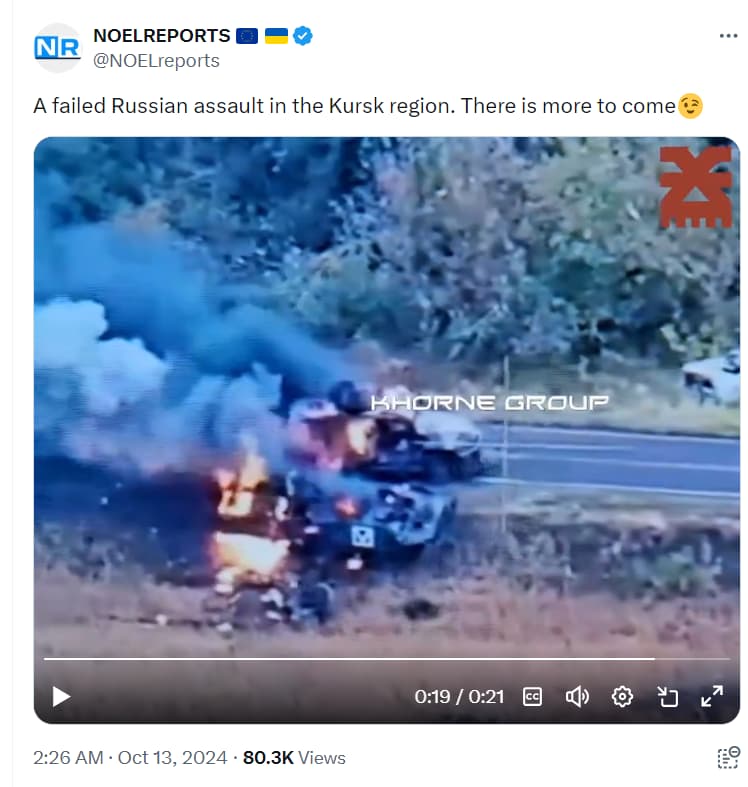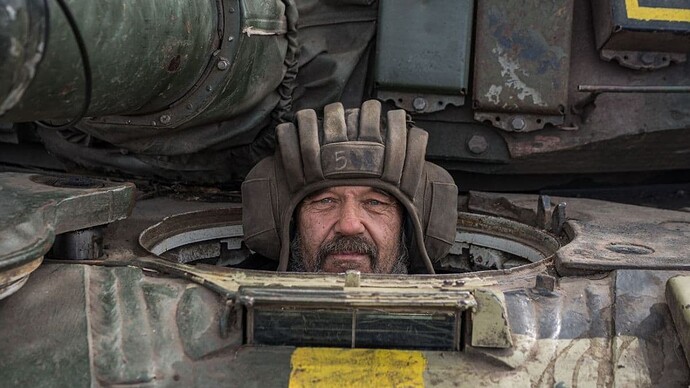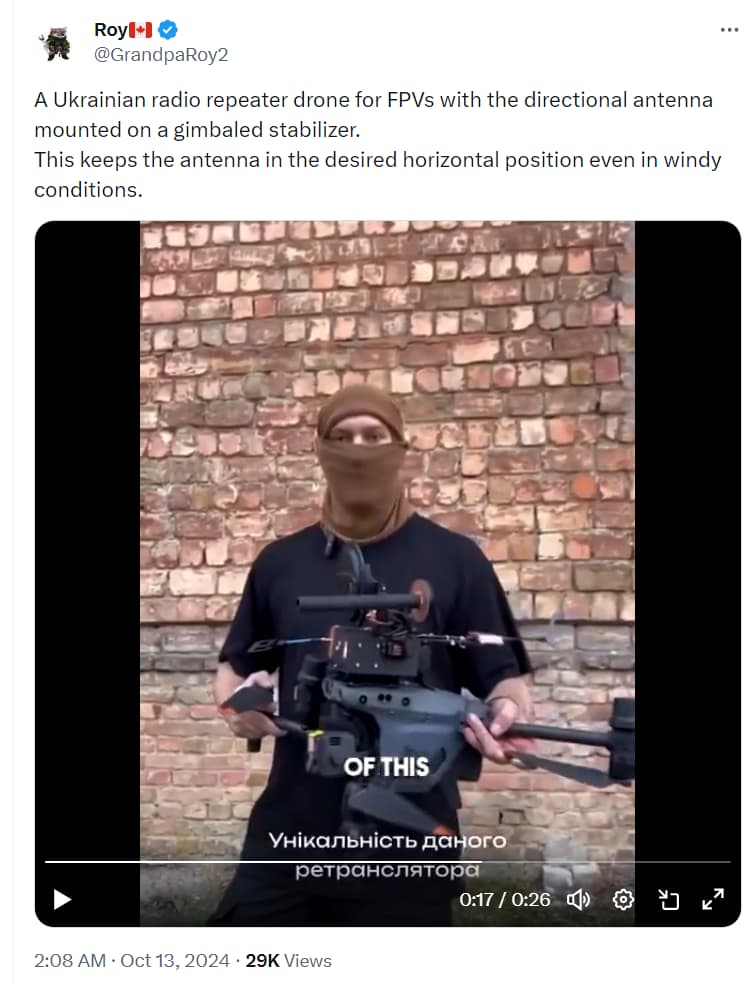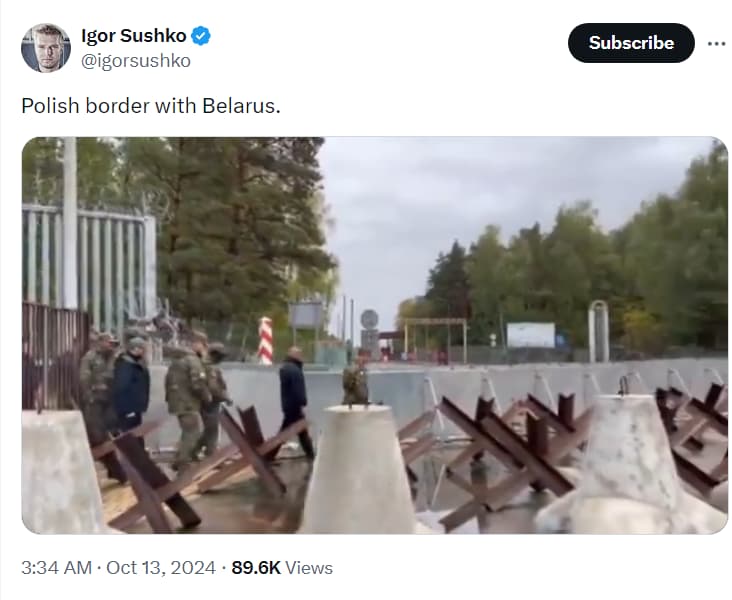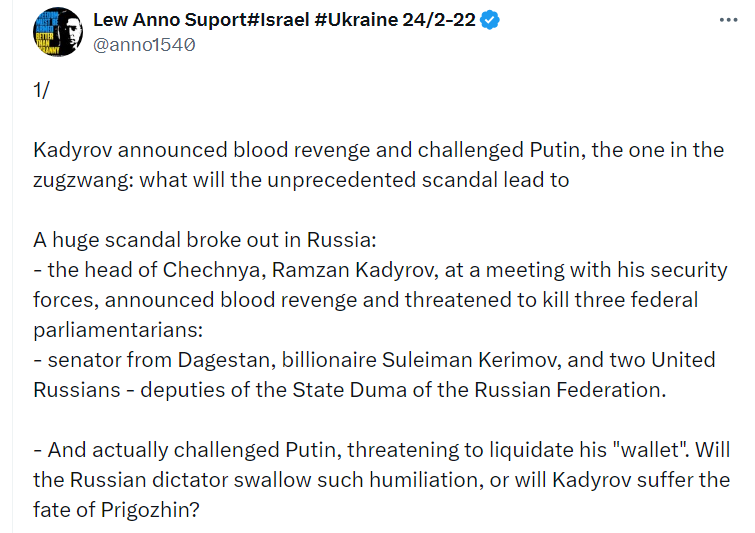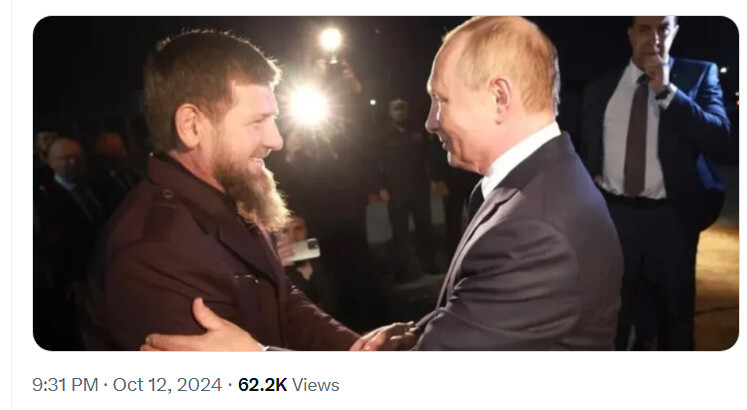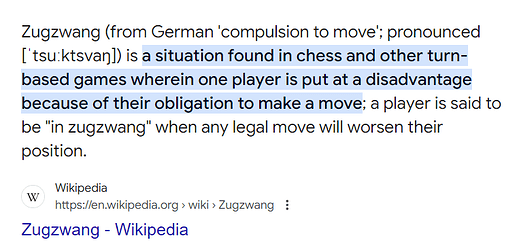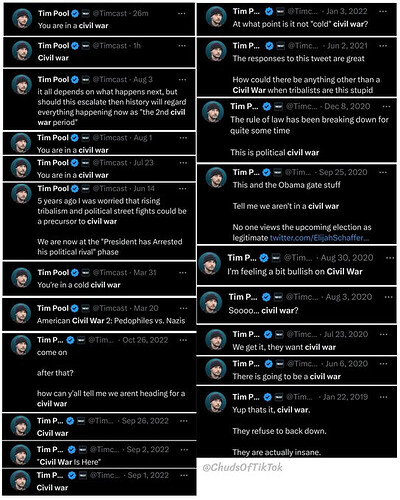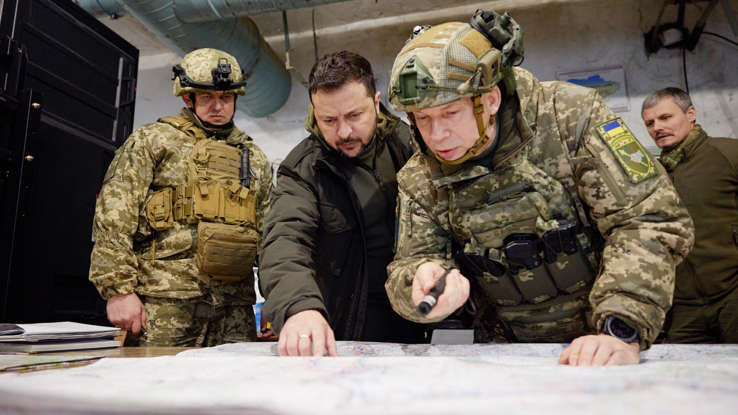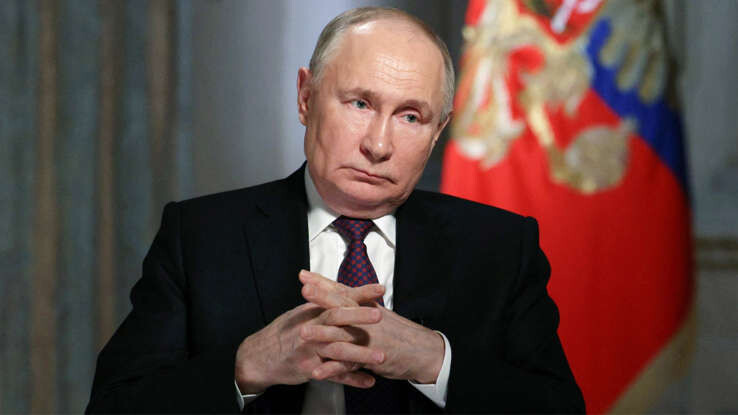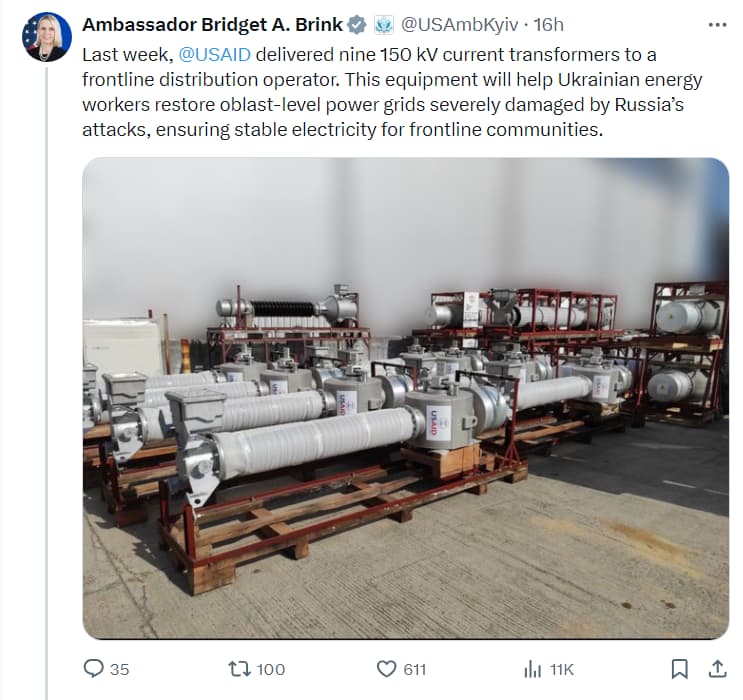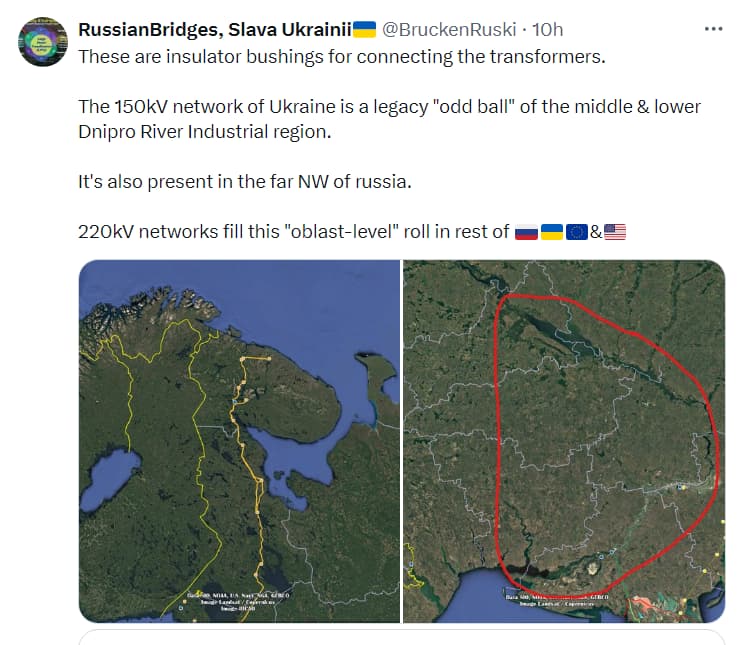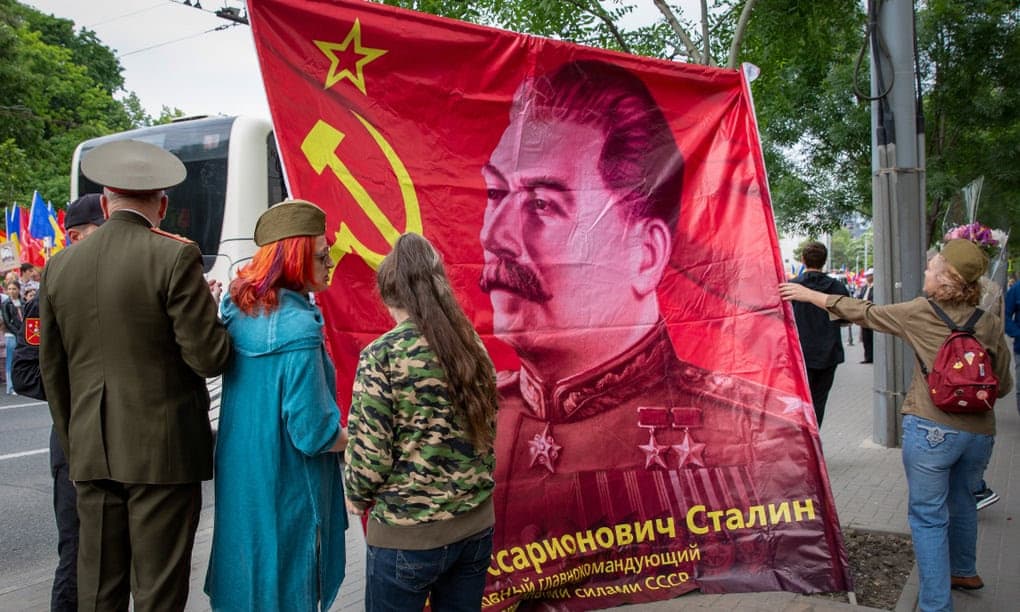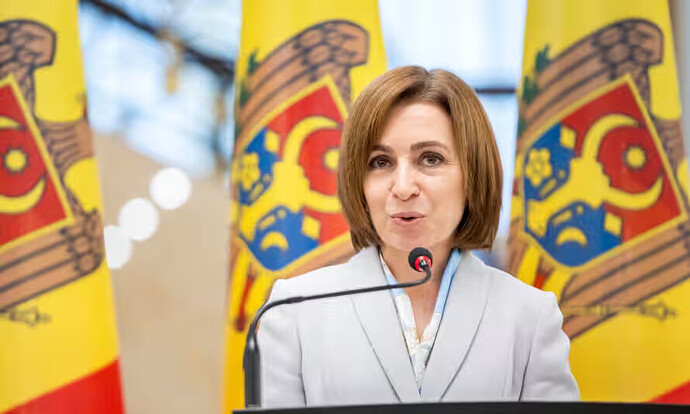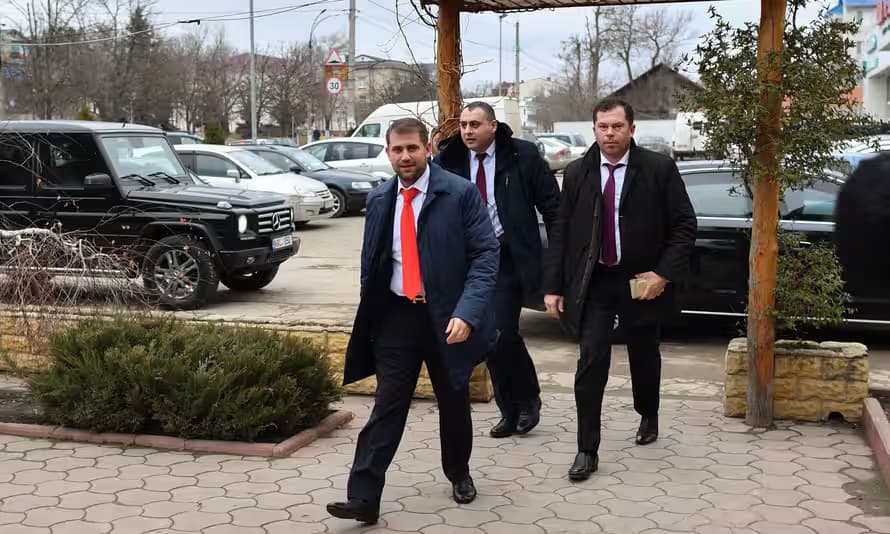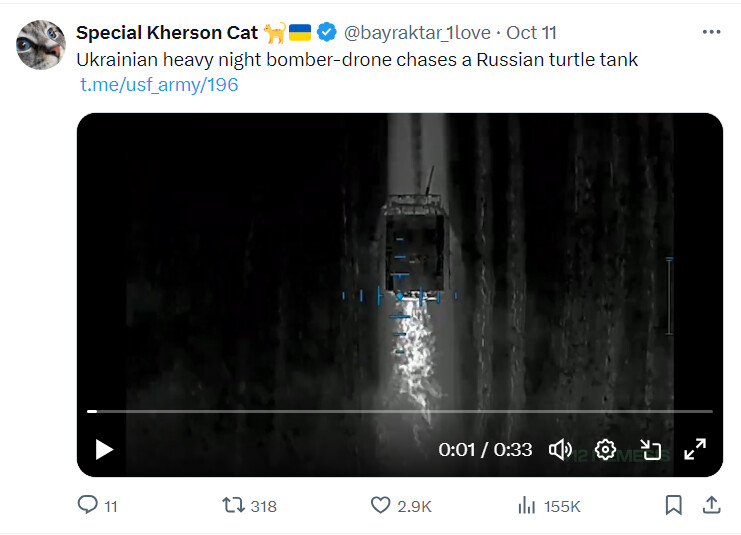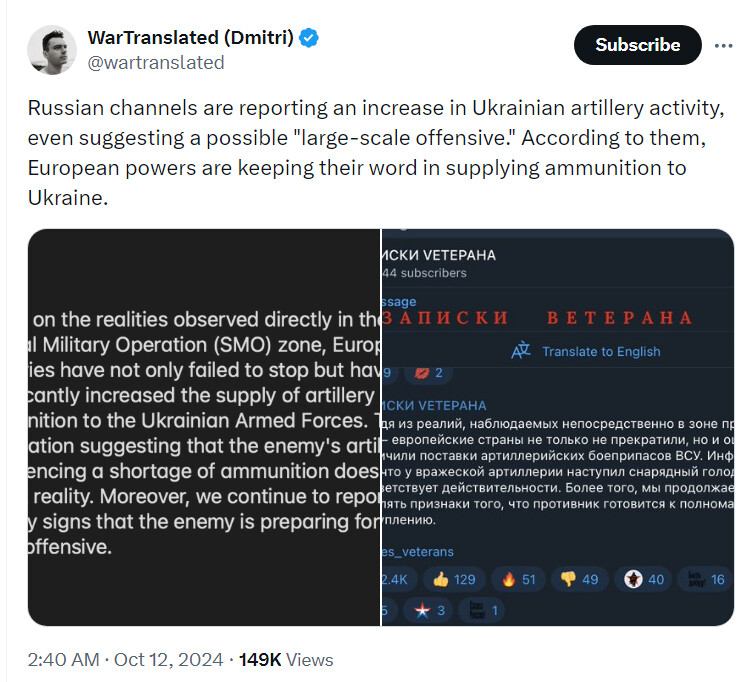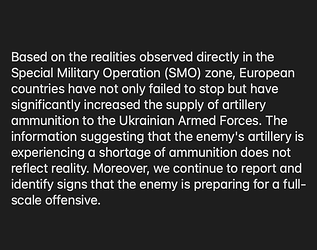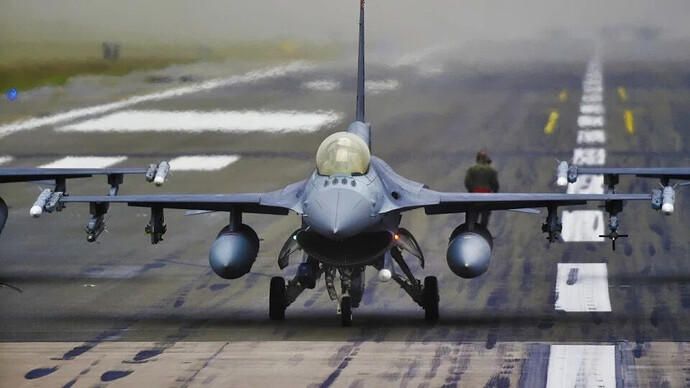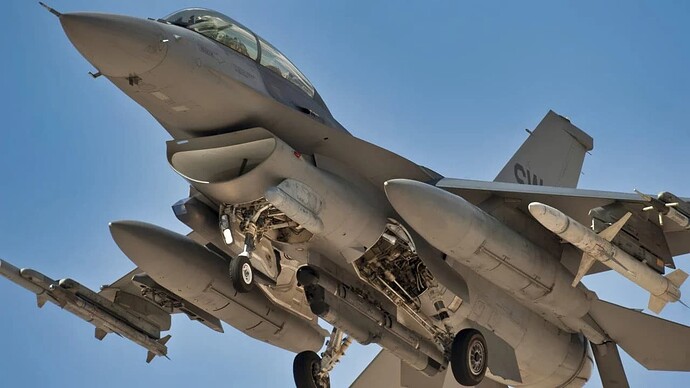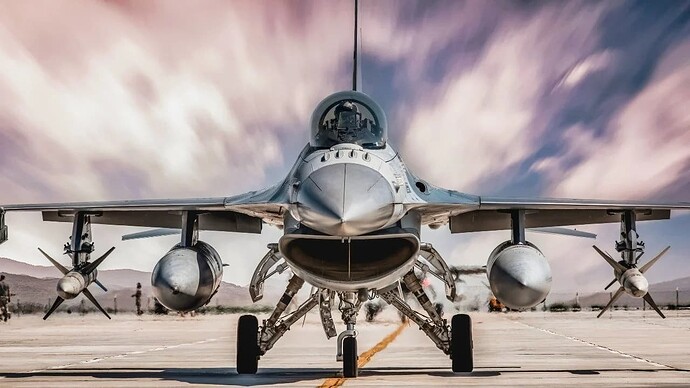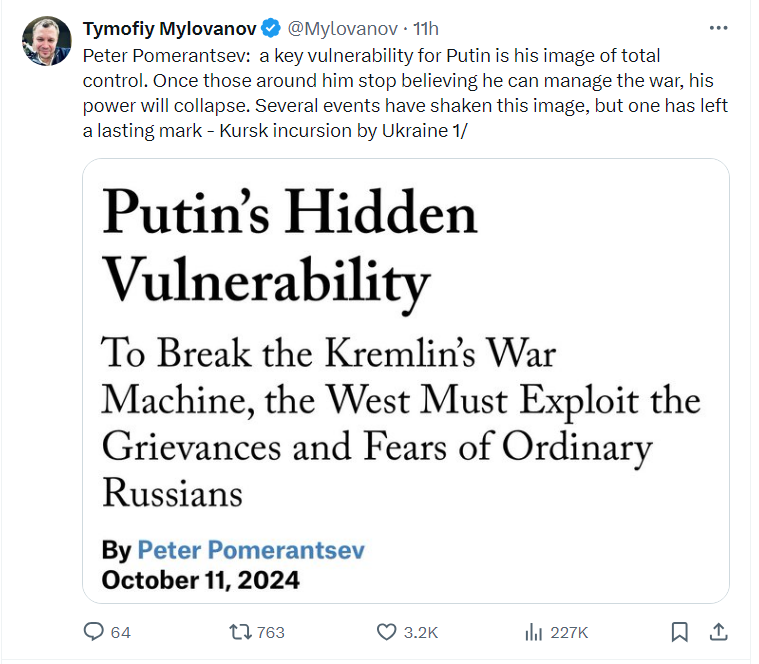Russia-Ukraine war: Frontline update as of October 12
SUN, OCTOBER 13, 2024 - 00:30
Russian forces continue to attack the Ukrainian Armed Forces in four directions (photo: Getty Images)
Since the beginning of October 12, 153 combat engagements have been reported along the front lines. The situation remains particularly intense in the Kupiansk, Kurakhove, Toretsk, and Pokrovsk directions, according to the evening briefing from the General Staff of the Armed Forces of Ukraine.
Enemy shelling
Russian forces launched one missile strike on Ukrainian territory with three missiles, carried out 61 airstrikes, dropped 106 guided aerial bombs, and deployed 399 kamikaze drones. Additionally, the enemy conducted 3,275 shelling attacks on the positions of our forces and populated areas.
Frontline situation
In the Kupiansk direction, the enemy stormed the positions of Ukrainian forces 23 times in the areas of Petropavlivka, Kucherivka, Kolisnykivka, Kruhlyakivka, and Myasozharivka. Fighting continues near Stepova Novoselivka, Pishchane, Vyshneve, and Lozova.
In the Lyman direction, Russian forces attempted to advance 19 times in the areas of Novomykhailivka, Hrekivka, Nevske, Novosadove, and Torske. Ukrainian defenders are holding the line steadfastly, inflicting significant losses on the enemy.
In the Siversk direction, the opponent launched five attacks, concentrating their efforts mainly around Verkhnokamyanske, Ivano-Darivka, and Vyyimka. One engagement is still ongoing in this area.
In the Kramatorsk direction, the Russian army attacked the Defense Forces nine times, attempting to break through our defenses near Kalynivka, Chasiv Yar, and Stupochky. The situation remains under the control of Ukrainian forces.
In the Toretsk direction, the Russian army launched 14 attacks, supported by aviation, near Toretsk and in the vicinity of Shcherbynivka. Ongoing engagements are still taking place.
In the Pokrovsk direction, the intensity of hostilities remains high, with the number of engagements increasing to 27. The Russian forces continue to press our positions near the populated areas of Myroliubivka, Lysivka, Krutyi Yar, Selydove, Novotroitske, Myrnohrad, and Mykhailivka. Our defenders have repelled 24 attacks, with three engagements still ongoing.
Preliminary losses for the Russian army amount to 287 troops killed and wounded. Additionally, one tank, five armored combat vehicles, three artillery systems, and seven vehicles have been destroyed, while one tank and two artillery systems have been damaged.
In the Kurakhove direction, there have been 47 combat engagements of varying intensity at this time of day. The Russian forces have most actively attempted to advance in the areas of Izmailivka, Hirnyk, Kurakhove, Zhelane Druhe, Tsukuryne, Novodmytrivka, Novoselidivka, Heorhiyivka, Kostiantynivka, Kurakhove, Zoriane, Dalne, and Antonivka.
Preliminary losses for the enemy in this direction amount to 104 troops killed and wounded. One tank, seven armored combat vehicles, and two vehicles have been destroyed, 53 drones have been suppressed, and another tank has been significantly damaged.
In the Vremivka direction, the Russian army, with air support, has launched four assaults on the front line of our defenses in the area of Bohoyavlenka today.
In the Prydniprovskyi direction, nine attempts by the enemy to seize our forces’ positions have been unsuccessful.
It is important to note that Russian forces attempted to reclaim territory captured by the Armed Forces in the Kursk region. However, our defenders mounted a strong resistance.
Additionally, Ukrainian forces have dismantled a Russian assault brigade that committed brutal abuses against Ukrainian prisoners of war.
Meanwhile, the National Guard has uncovered a mole collaborating with the Russians. The serviceman was leaking information about aircraft movements in the Sumy region to the Russian army.
Don great thread summarizing the main actors don and the background to the troubles with Don, don.
Civil War?
Could this Russian initiative change the course of war in Ukraine?
Story by thedailydigest.com • 5h
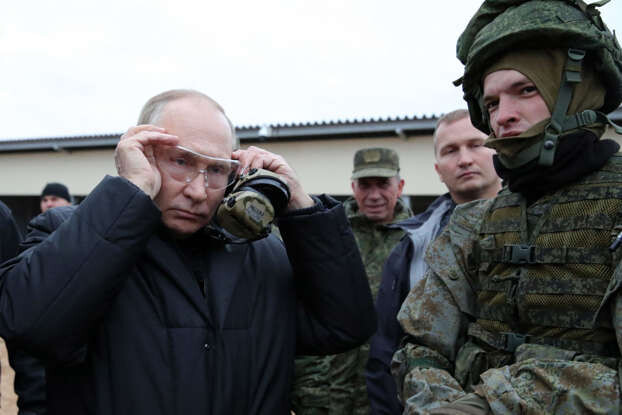
Logistics are important
The Russia-Ukraine conflict may have reached a significant juncture. Recently, military officials in Kyiv revealed that the invading country is nearing completion of new infrastructure that could significantly enhance its logistics.
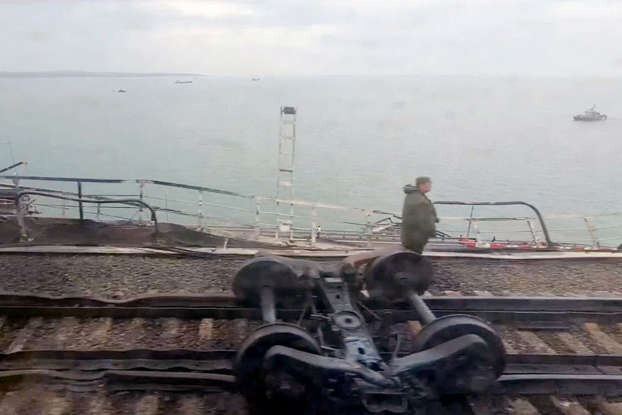
New railway line: Tavrida-2
©Provided by The Daily Digest
This is a new railway line called Tavrida-2, which measures about 500 kilometers and connects the Russian city of Rostov-on-Don with Crimea, as reported by the Spanish newspaper El País.
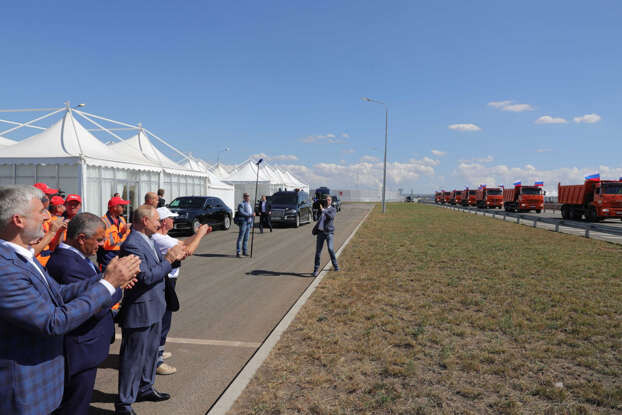
Increased Russian presence in occupied provinces
©Provided by The Daily Digest
This infrastructure, built along the Sea of Azov, guarantees a greater Russian presence in the occupied provinces: Donetsk, Lugansk, Zaporizhzhia and Kherson.
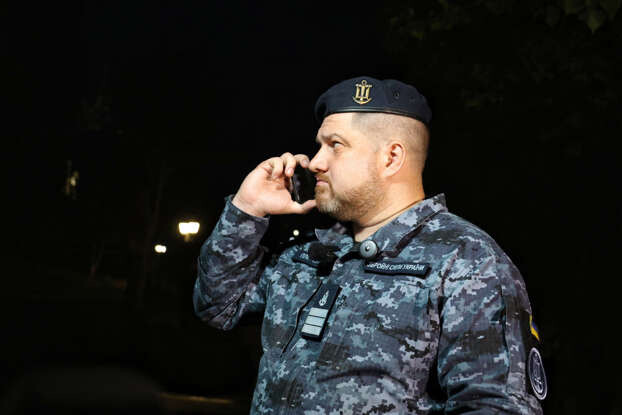
Before the end of the year
©Provided by The Daily Digest
The spokesman for the Ukrainian navy, Dmitro Pletenchuk, has stated that the Russians will complete the railway section before the end of the year, “at least from Rostov-on-Don to the Dzhankoi Isthmus” (between Crimea, illegally annexed in 2014, and Kherson).
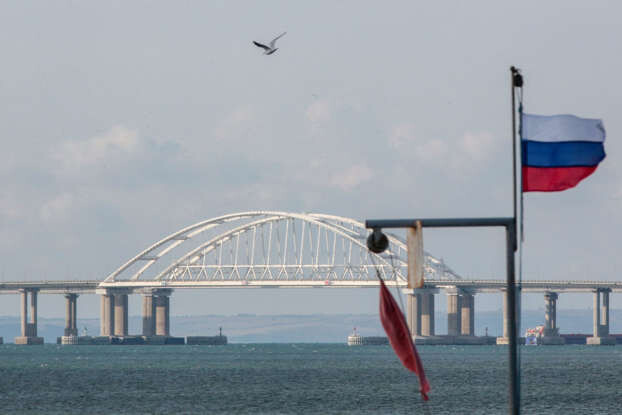
It’s the second line
©Provided by The Daily Digest
It is not the first railway line connecting Russia to the occupied territories. There is another one that crosses the Kerch Strait bridge.
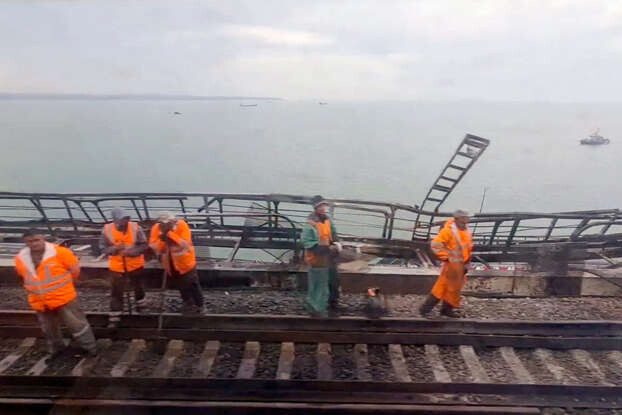
A new alternative for Russia
©Provided by The Daily Digest
On several occasions Ukraine has managed to partially destroy this bridge, considerably delaying the invader’s military logistics times. However, the new project represents an alternative for Russia.
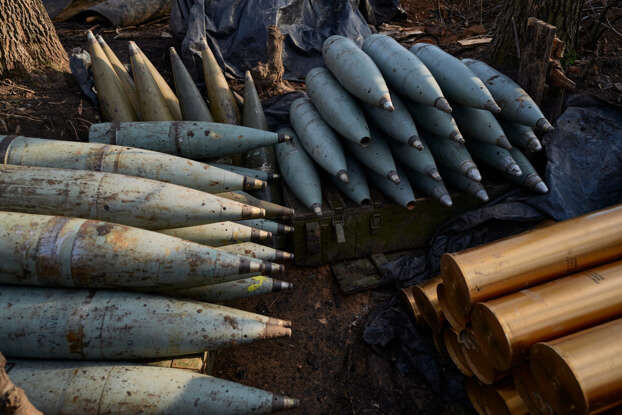
Improve supply to troops
©Provided by The Daily Digest
Among the objectives of this new project is the need to increase the supply of equipment to the Russian military forces.
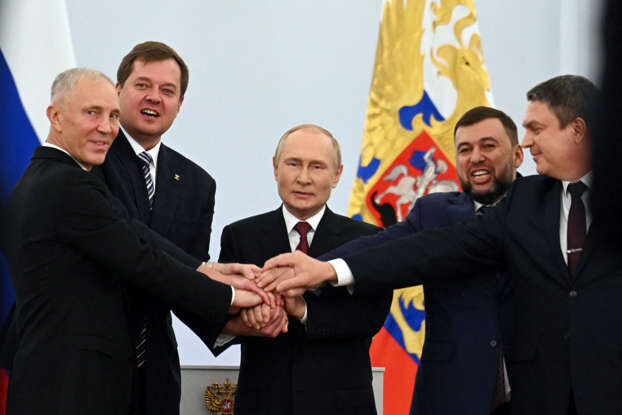
Commodity export
©Provided by The Daily Digest
On the other hand, Yevgeny Balitsky, the Russian-imposed governor of the occupied parts of Zaporizhzhia, also said that this new railway will help solve the problems of exporting products such as grain, iron ore, coal, as reported by the newspaper The Telegraph.
Concerned about infrastructure
©Provided by The Daily Digest
Pletenchuk has expressed concern about the progress of this infrastructure that has been built in a very short time. For this reason, the Ukrainian authorities are looking for a way to boycott the transit of these trains, which would travel even closer to the combat zone.

Russia is finishing its construction
©Provided by The Daily Digest
The construction of this railway was not a surprise. Last March, the head of the Ukrainian Defense Ministry’s intelligence services, Kirilo Budanov, stated that Russia was completing the construction of that line.
“It will make us stronger”
©Provided by The Daily Digest
Vladimir Putin, in his propaganda speeches, also made reference to this infrastructure. The creation of this route “will make us genuinely stronger,” the president said at a rally in March.
Russia fails to fully benefit from capturing Vuhledar - former U.S. Army Commander in Europe
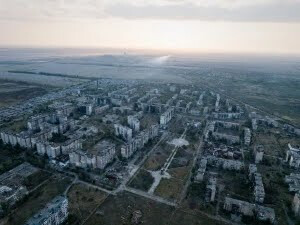
Nadia Boianivska 12 October, 2024 Saturday, 19:02
Ben Hodges, former U.S. Army Commander in Europe, believes Russia can’t achieve its strategic goals despite capturing Vuhledar due to massive losses
He expressed this opinion on Espreso TV.
'Losing Vuhledar and other cities in this area is difficult psychologically. You hate to lose a town where you’ve fought so hard for so long. But before we decide, ‘Oh my God, this is a strategic failure,’ we need to keep in mind that Russia is not able to fully exploit these captures. Whether it’s Avdiivka, Bakhmut, or now Vuhledar, they are losing tens of thousands of soldiers and equipment for very, very minor gains. They don’t have the capability to overrun everything and, for example, reach Dnipro.
I think the General Staff is using the right tactics with what they have to prevent Russia from achieving any significant breakthroughs. At the same time, I applaud the decision to launch a counteroffensive in the direction of Kursk. This creates a real problem for the Russians, and I believe there is likely pressure on Putin to deal with this. It also puts Ukraine in a better negotiating position when the time comes,” Hodges explained.
The general is convinced that Ukraine’s victory in the war against Russia is in the strategic interests of the United States and Europe.
“This will certainly be a challenge for Ukraine moving forward, but people should not lose sight of the fact that after over 10 years of war, with Russia having every advantage, Ukraine still controls over 80% of its territory, and its army is growing in size and capability. So, I remain optimistic, especially if the United States - with a new administration - and Germany decide that a Ukrainian victory is in our strategic interests,” he emphasized.
- Ukraine’s Defense Forces have officially withdrawn from Vuhledar, Donetsk region, to preserve personnel and military equipment and to take up a position for further operations.
- On October 3, President of Ukraine Volodymyr Zelenskyy called the withdrawal of the Ukrainian military from Vuhledar the right thing to do, as it helped save the lives of soldiers.
- After the withdrawal from Vuhledar in the Donetsk region, which was reported on October 2, the 72nd Brigade continues to defend its position in the same direction.
'Russia’s dirty money will hijack our democratic process’: how tiny Moldova fears Kremlin is fixing EU referendum
Officials believe €100m has been funnelled into the country to influence the pivotal vote and the presidential election
Sun 13 Oct 2024 01.00 AEDT
Last spring, customs officers in the tiny nation of Moldova struck gold. Acting on a national intelligence tip-off from, they intercepted more than 100 passengers arriving from Russia via Armenia, each carrying bundles of cash just shy of €10,000 – the threshold for mandatory declaration. In a single night authorities at Chișinău airport seized more than €900,000.
Moldovan officials swiftly announced that the cash couriers were part of a scheme allegedly led by a Kremlin-linked fugitive oligarch and aimed at financing protesters and buying votes in this month’s presidential election and pivotal EU referendum.
The operation offered an early indication of what Moldovan and western officials have described in interviews with the Observer as an unprecedented effort by Russia to undermine the country’s bid for EU membership and weaken the authority of its pro-western president through a series of destabilising campaigns.
“Russia is pouring millions in dirty money to hijack our democratic processes. This isn’t just meddling – it’s full-blown interference aimed at destabilising our future. And it is alarming,” said Olga Roşca, a foreign policy adviser to the pro-western president, Maia Sandu.
Moldovan president Maia Sandu, who is standing for re-election this month, has a pro-European agenda and is an anti-corruption reformer. Photograph: Dumitru Doru/EPA
The election, set for 20 October, in which Sandu faces re-election, is to be held on the same day as a referendum asking Moldovans whether they support constitutional changes that could eventually enable the country – one of the poorest in Europe – to join the EU.
Roşca said the government estimated that at least €100m was being funneled into Moldova from Russia to manipulate the elections and EU referendum. It is not the first warning about Russian interference: in June, the US, UK and Canada said Moscow was trying to meddle in Moldovan politics and would seek to provoke mass protests if its campaign fails.
Since the breakup of the Soviet Union, Moldova has gravitated between pro-western and pro-Russian courses, though the shadow of the Kremlin has always loomed large. Moscow also has 1,500 troops stationed in Transnistria, a region run by pro-Russian separatists who broke away from the control of Moldova’s government in a brief war in the 1990s.
Sandu, a former World Bank official, was elected president in November 2020, riding a wave of popularity as an anti-corruption reformer with a pro-European agenda. She has advocated a humble lifestyle – a sharp contrast to the bombastic, predominantly male politicians who have long dominated Moldovan politics.
In a recent interview, the president said she was sharing a two-bedroom apartment with her mother, while in her asset declaration from 2023 her bank balance was recorded as $600.
In 2021, Sandu’s pro-western party, PAS, won a majority in the country’s parliamentary elections, giving her unprecedented power to implement reforms and push the country toward the west. But, three years later, Moldova remains mired in economic and political instability.
First, the country was plunged into an energy crisis when Kremlin-controlled Gazprom slashed gas supplies to the country by one-third and demanded more than double the previous rates to maintain the flow, in what was widely seen as political payback from Moscow for Sandu’s pro-western stance. Then, Russia’s war on Ukraine pushed Moldova into a broader financial crisis.
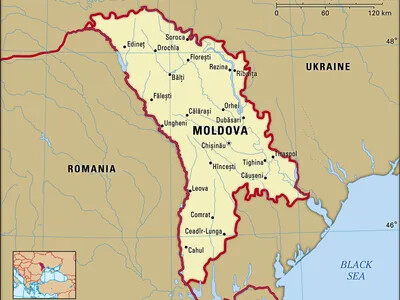
Located just a few hours drive from Odesa, Moldova took in the highest number of Ukrainian refugees per capita, placing immense strain on its healthcare system, public services, and infrastructure. Inflation surged by as much as 40% as trade with both Moscow and Kyiv sharply declined.
The fugitive businessman Ilan Shor (left), accused of establishing a ‘mafia-style’ voter-buying scheme. Photograph: Daniel Mihăilescu/AFP/Getty Images
Stray Russian missiles from the conflict added to the growing sense of danger, while the Russian troops stationed in Transnistria further amplified anxieties.
“Sandu promised a lot, but the geopolitical situation has been very tough on her. They have not been able to deliver on all promises,” said a western official in Moldova, reflecting on the growing frustration among some Moldovans with Sandu and her party.
“There is growing apathy and disappointment, which provides a fertile ground for Russia,” the official added.
Sandu remains the favourite to win the first-round presidential vote against 10 challengers, but she is facing a tricky second-round runoff.
She is also leading the “Yes” campaign for the EU referendum, with polls showing 55-65% of voters in favour of joining the bloc. In a major boost for Sandu, Moldova officially began EU accession negotiations in June. However, scepticism remains high about the country’s ability to implement the necessary democratic and judicial reforms in the near future.
Critics from the opposition have accused Sandu of politicising the referendum by holding it on the same day as the presidential election, suggesting that the move is designed to boost her own political chances. “The referendum is a very cynical move,” said Alexandr Stoianoglo in Chișinău, one of Sandu’s main rivals from the Russian-friendly socialist party, who is polling at 12%.
“EU integration should not be used for personal gain,” he added.
But those close to Sandu said Russia’s growing influence means the country cannot afford to wait. “We have a unique opportunity: Moldova has a pro-European president, parliament, and government. The EU is open to our membership, with all countries backing accession talks last June,” said Roşca. “Moldova’s survival as a democracy is on the line, and the geopolitical stakes are higher than ever,” said Roşca.
The biggest threat for Sandu comes from abroad, say her supporters. In particular, the fugitive pro-Russian businessman Ilan Shor, a vocal – and wealthy – opponent of EU membership who has been sanctioned by the west.
Shor was sentenced to 15 years in prison last year in absentia in connection with his role in the disappearance of $1bn from Moldova’s banking system. He fled to Israel and then Moscow where he set up a political movement aimed at destabilising the current government in Chișinău.
At a press conference last Thursday, national police chief Viorel Cernăuțanu accused Shor and Moscow of establishing a complex “mafia-style” voter-buying scheme and bribing 130,000 Moldovans to vote against the referendum and in favour of Russia-friendly candidates in what he called an “unprecedented, direct attack”.
Officials in Chișinău also believe Shor is behind a wave of pre-election vandalism attacks on government buildings, accusing him of recruiting young people who were allegedly trained in Moscow to cause unrest in the country. “We are prepared for anything in the coming weeks,” said a security official in the city. “It will be a variety of misinformation campaign, violent street protests and crude vote buying,” they added.
Shor did not reply to questions from the Observer. But he has done little to distance himself from the accusations of trying to interfere in Moldovan politics from abroad. Through the social network Telegram, he has offered to pay voters the equivalent of $29 if they registered for his campaign, promising money to people who would “convince as many people as possible at their polling station” to vote “no or abstain” in the referendum.
He has publicly pledged to pay Moldovans for publishing anti-EU posts on Facebook and Telegram.
The central “fear-mongering” narrative that Shor has been promoting centres around the claim that Chișinău’s pro-European policies are pushing the country towards war with Russia, said Vadim Pistrinciuc, the director at the Institute for Strategic Initiatives of Moldova, a thinktank.
“We have never faced this level of foreign interference,” he added.
Worryingly for officials in Chisinau, Shor’s tactics have proven effective elsewhere the country.
Last year, Yevgenia Gutsul, a previously unknown Shor-backed candidate, caused a political earthquake by winning the elections of governor in Gagauzia, another small, Russian-speaking semi-autonomous region in the south of the country.
Pro-Russian sentiments have always been high in Gagauzia, a region populated by a Turkic ethnic minority, which has had an uneasy relationship with the capital Chisinau since the 1991 breakup of the Soviet Union.
But Gutsul’s rise from obscurity and her ties to the Kremlin has stunned even seasoned observers and have prompted questions over Moscow’s role in her elections.
“She was polling at zero two weeks before the elections and then suddenly she appears and wins,” said Mihail Sirkeli, founder of Nokta, an independent media outlet based in Gagauzia.
Gutsul, who has openly declared running “a pro-Russian party” and travelled to Moscow to meet with Vladimir Putin after her election, is currently under investigation for allegedly funnelling Russian funds to a party associated with Shor.
“Shor is looking to repeat the Gagauzia playbook across the country,” said a western diplomat in Chisinau.
For now, officials in Moldova believe Moscow is concentrating its efforts on influencing the EU referendum, rather than the presidential elections where Sandu remains by far the most popular politician.
“If the referendum passes, it will lead to constitutional changes, which are harder to reverse in the long term compared to election outcomes,” said a senior Moldovan official.
But even if Sandu survives this month’s vote and referendum, her team expects renewed Kremlin efforts next year when her party faces re-election in the country’s parliamentary elections.
“Russia’s goal is clear: to keep Moldova stuck in a grey zone,” said Roşca. “If they lose Moldova, they lose a strategic foothold in the region.”
Holy heck! That tanker got blown down the street like it was a giant marble rolling down the street.
Long may RU continue to fail.
Now that’s a real badda boom.
what does ‘dismantled’ mean?
I just dismantled a bed, and it’s ready to reassemble to 100% of its former glory.
I’m guessing this dismantling is different.
In one sense, it is similar.
Dismantled = taken apart.
dismembered?
Well within the realms of possibility.
Russia Can’t Hide the Fact Its Air Force Is Taking Heavy Losses in Ukraine
October 12, 2024
Russia lost another Su-34 combat aircraft over Ukraine on Saturday, reportedly shot down by an American-made F-16, marking the first air-to-air kill by Ukrainian-operated F-16s. The Su-34, a crucial asset for Russian air operations, has suffered significant losses during the conflict, with up to a quarter of Russia’s pre-war fleet destroyed.
What You Need to Know: Russia lost another Su-34 combat aircraft over Ukraine on Saturday, reportedly shot down by an American-made F-16, marking the first air-to-air kill by Ukrainian-operated F-16s. The Su-34, a crucial asset for Russian air operations, has suffered significant losses during the conflict, with up to a quarter of Russia’s pre-war fleet destroyed.
-Pro-Kremlin milbloggers broke the news via Telegram, mourning the loss while simultaneously criticizing the Russian military leadership.
-Analysts suggest that Russia’s mounting combat losses, paired with Western-supplied F-16s entering the fray, could inflame anti-Western sentiment and further strain Russian efforts to maintain air superiority.
Russia Loses Another Su-34 to Ukraine’s F-16 in Historic Air-to-Air Kill
On Saturday, news circulated that Russia lost another combat aircraft. A Sukhoi Su-34 (NATO reporting name Fullback) was reportedly shot down by an American-made F-16 Fighting Falcon, marking the first confirmed air-to-air kill involving a Ukrainian-operated F-16.
Russia may have lost at least three dozen of the Su-34s, accounting for nearly a quarter of its pre-war fleet of 140. While the United Aircraft Corporation (UAC), the subsidiary of the state-owned military-industrial conglomerate Rostec, announced just this past week that it had delivered a new batch of Su-34s, combat losses are outpacing production – and that could be pushing Russia to the brink.
“Russia is on the offensive in Ukraine, but this incident could be seen as a serious setback because the Su-34 are the planes Russia uses to clear the way and destroy Ukrainian infrastructure,” explained geopolitical analyst Irina Tsukerman, president of Scarab Rising.
Confirmation Came From Russia
What is also noteworthy about the loss of the Russian aircraft on Saturday is that the news first circulated via social media – and from accounts belonging to pro-Kremlin milbloggers, who regularly provide updates on the conflict via the Telegram social messaging app.
“One of the gifts social media has given us is that for legitimate sources, it is the absolute fastest way to break news,” said Susan Campbell, distinguished lecturer in the School of Communication at the University of New Haven.
“Even mainstream media outlets will often tease out stories online, before they publish or broadcast,” Campbell told The National Interest. “The challenge for news consumers, of course, is to vet those sources to make sure they are sharing accurate information. The old adage should still be: Get it first, but get it right.”
Instead of carrying water for the Kremlin, these milbloggers remain highly critical of the war effort, even as they continue to show their support for Russian President Vladimir Putin. It can do both by reporting on the war, while also stirring up support back home.
“These propagandists are looking to turn Ukraine into a villain and thus instigate an anti-Ukraine feeling among their population,” added Tsukerman.
She told The National Interest that even as the milbloggers have mourned the loss of their Su-34, and criticized the handling of the ongoing fighting, it is also meant to stir up anti-U.S. sentiment.
“The use of the F-16 is important here because the pro-Kremlin propagandists are looking for any excuse to attack US aid to Ukraine, and thus this is an opportunity to also attack the U.S. and the Western assistance to Ukraine and to make a point that Ukraine is merely a proxy for the CIA/MI6 etc who are directly attacking Russia with the use of their equipment,” suggested Tsukerman. “It’s just another way to discredit NATO and to support its ongoing conspiracy theories that NATO has been plotting to attack or invade Russia all along. It’s also a good way to spin a failure and the fact that Russian air superiority is now being effectively degraded.”
Even as there is criticism of the Russian military leadership, the message remains that NATO is a serious threat.
“The spirit of these messages from the pro-Kremlin bloggers is clearly to point out the danger of NATO and the possibility of future such attacks, perhaps as a justification for new and more serious airstrikes against Ukraine – or even a potential justification to take some level of provocative action against NATO,” Tsukerman continued. “There is always a possibility that some of the pro-Kremlin bloggers fell victim to Ukrainian disinformation and are trying to get on top of a non-existent story lest they be blamed for not covering such an important war development, all the while incidentally sowing panic and distracting from where the real action is.”
